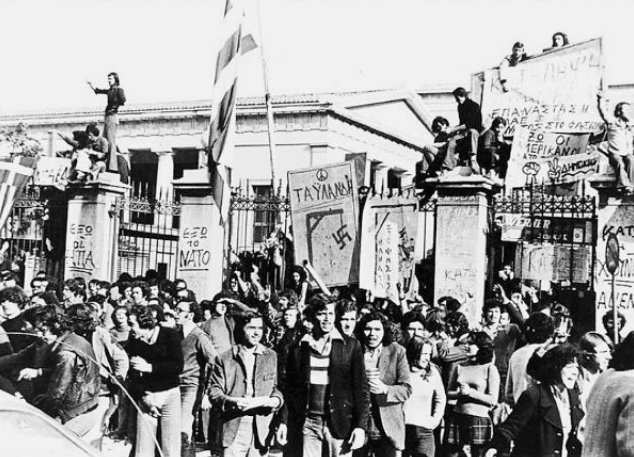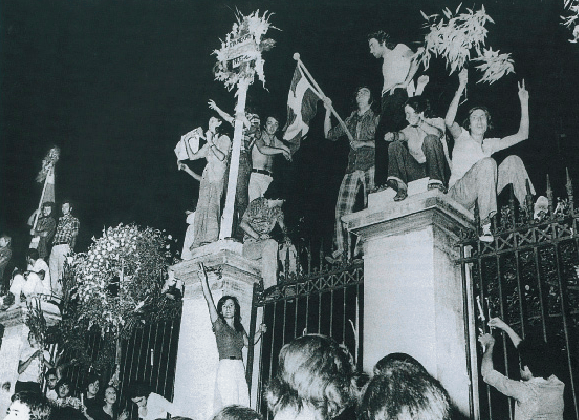
Every November, Greeks around the world remember the heroic students, young people and the whole of Greece who went up against the Junta, in November 1973.
The Athens Polytechnic uprising in 1973 was a massive demonstration of popular rejection of the Greek military Junta of 1967 to 1974.
The uprising began on November 14, 1973, it escalated to an open anti-junta revolt and ended in bloodshed in the early morning of November 17 after a series of events starting with a tank crashing through the gates of the Polytechnic.

It is reported that Cretan singer and fighter against the regime Nikos Xylouris enters the Polytechnic to encourage the students. Despite the large police presence, more and more people enter the Polytechnic to stand by the students.
At 2am on November 17th the tanks President, George Papadopoulos ordered to crush the student rebellion arrive at the Polytechnic. At 2:15 a group of students come out to negotiate a surrender asking for half an hour to evacuate the campus. The officers in charge said they would only give them fifteen minutes but didn’t even wait for ten.

At 3am a tank crashed through the gate of the polytechnic and police and military stormed the campus. As the gate crashed to the ground students rushed out to escape and are beaten with clubs and arrested. At least 34 demonstrators were killed though there are rumours that the number is much higher. Several hundreds were injured and almost a thousand arrested at the school and at the Ministry of Public Order, which had been under siege by demonstrators.
For the next two days crowds attempting to gather in central Athens were broken up by police and soldiers were everywhere. Tanks were parked in squares around the city and surrounded the Parliament building. The rebellion at the Polytechnic was over and the country was put under martial law for the next week.
The Polytechnic uprising symbolises not only the heroic struggle but also the unity of all democrats.
The November struggles are the highest expression of the seven-year fight against the dictatorship, and one of the most important moments in the fight for freedom of the Greek people and especially Greek youth.
The 17th of November 1973 was the turning-point of the 1967 dictatorship. Although the students did not actually overthrow the regime, the intense and persistent reaction, the new voice heard from the Polytechnic and the earlier Law School sit-in, shook the Junta to its rotten core.

